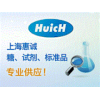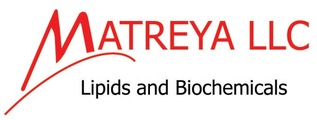      |

 通过认证 [诚信档案]
通过认证 [诚信档案]

| Cat. Number |
1147
|
| Chemical Name |
十六碳烯酸(trans-9) Hexadecenoic acid (trans-9)
|
| CAS Number |
10030-73-6
|
| Mol. Formula |
C16H30O2
|
| Mol. Weight |
254
|
| Qty 1 |
100mg
|
| Appearance |
solid
|
| Application Notes |
99%,GC, TLC
|
| Synonym |
十六碳烯酸(trans-9) Hexadecenoic acid (trans-9),C16:1 (trans-9) Fatty acid; Palmitelaidic acid
|
| Solubility |
chloroform, hexane, ethyl ether
|
| Storage condition |
-20℃
|
| References |
Application Notes: This high purity monounsaturated fatty acid is ideal as a standard and for biological systems. This fatty acid is the trans isomer of the naturally occurring and more prevalent palmitoleic acid. Palmitelaidic acid occurs naturally in some bacteria and other microorganisms and it is the predominant trans-fatty acid present in ruminant milk fat isolated from cheese (about 0.07% of the total fatty acids) along with small amounts of other trans-fatty acids.1 In some bacteria cis-trans isomerization of cis-9-hexadecenoic acid (palmitoleic acid) to trans-9-hexadecenoic acid (Palmitelaidic acid) can occur intracellularly without a shift in the bond position.2 Palmitelaidic acid appears to be located exclusively at the sn-2 position of phosphatidylethanolamine in these bacteria. However, it does not appear that the trans fatty acid is synthesized de novo by trans-desaturation from hexadecanoic acid but rather isomerized from palmitoleic acid that is present in these bacteria.3 Palmitelaidic acid, along with other trans-fatty acids, has been identified as having a positive association with coronary artery disease and is therefore of concern in partially hydrogenated oils.
References: |